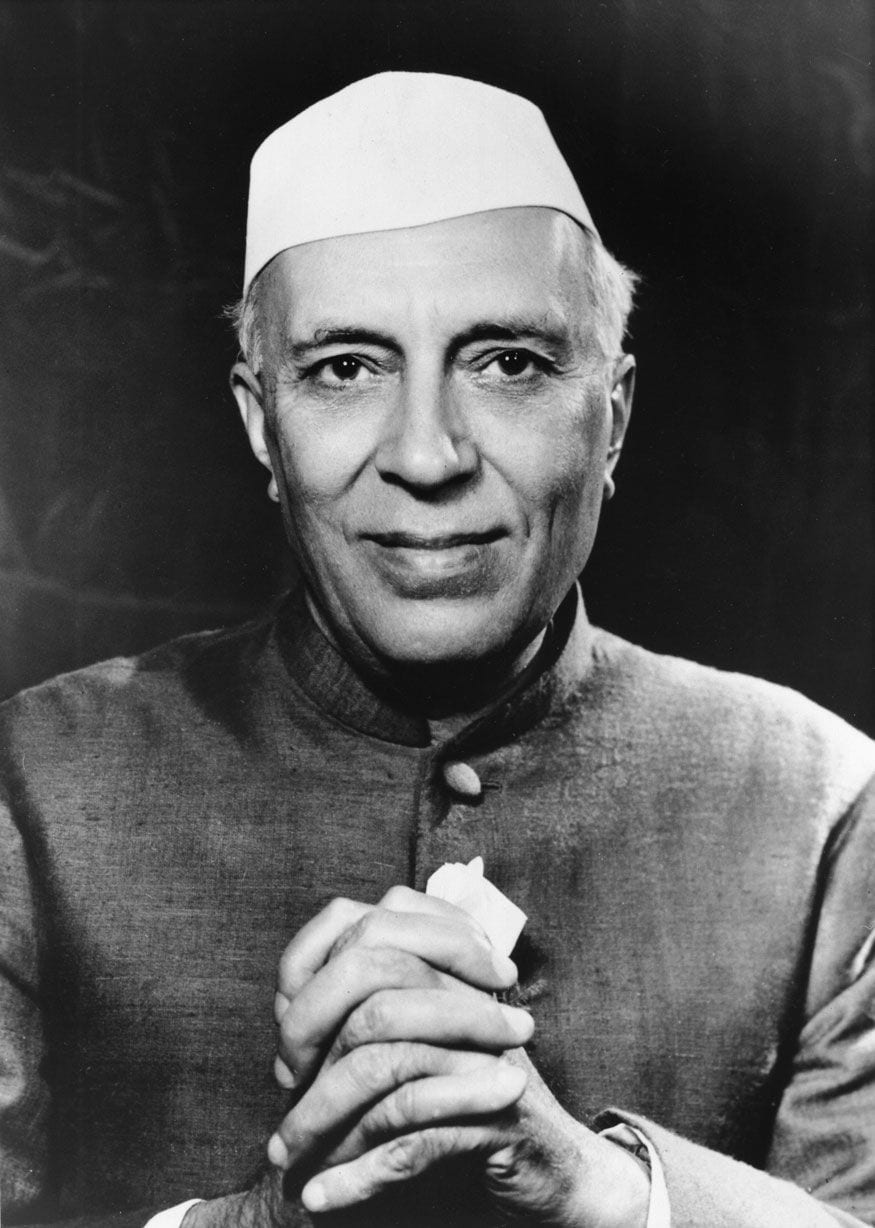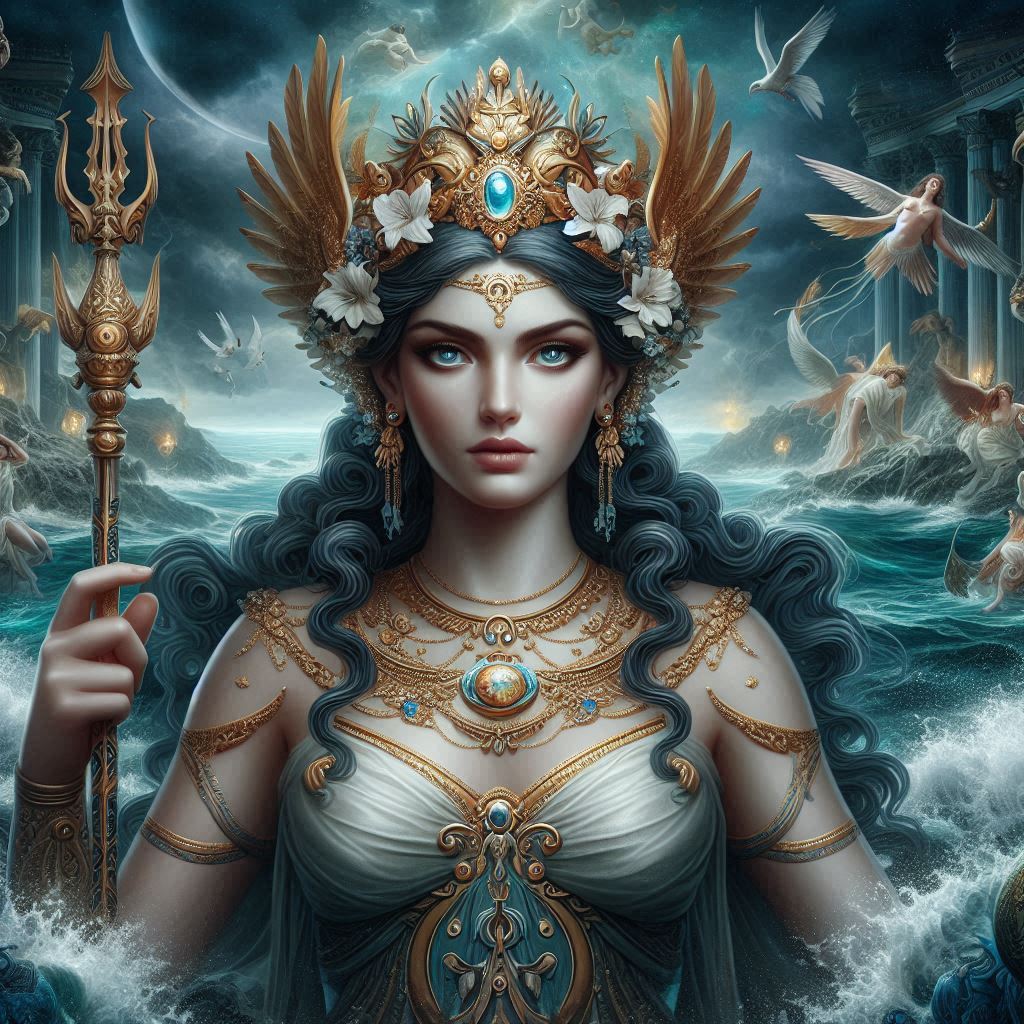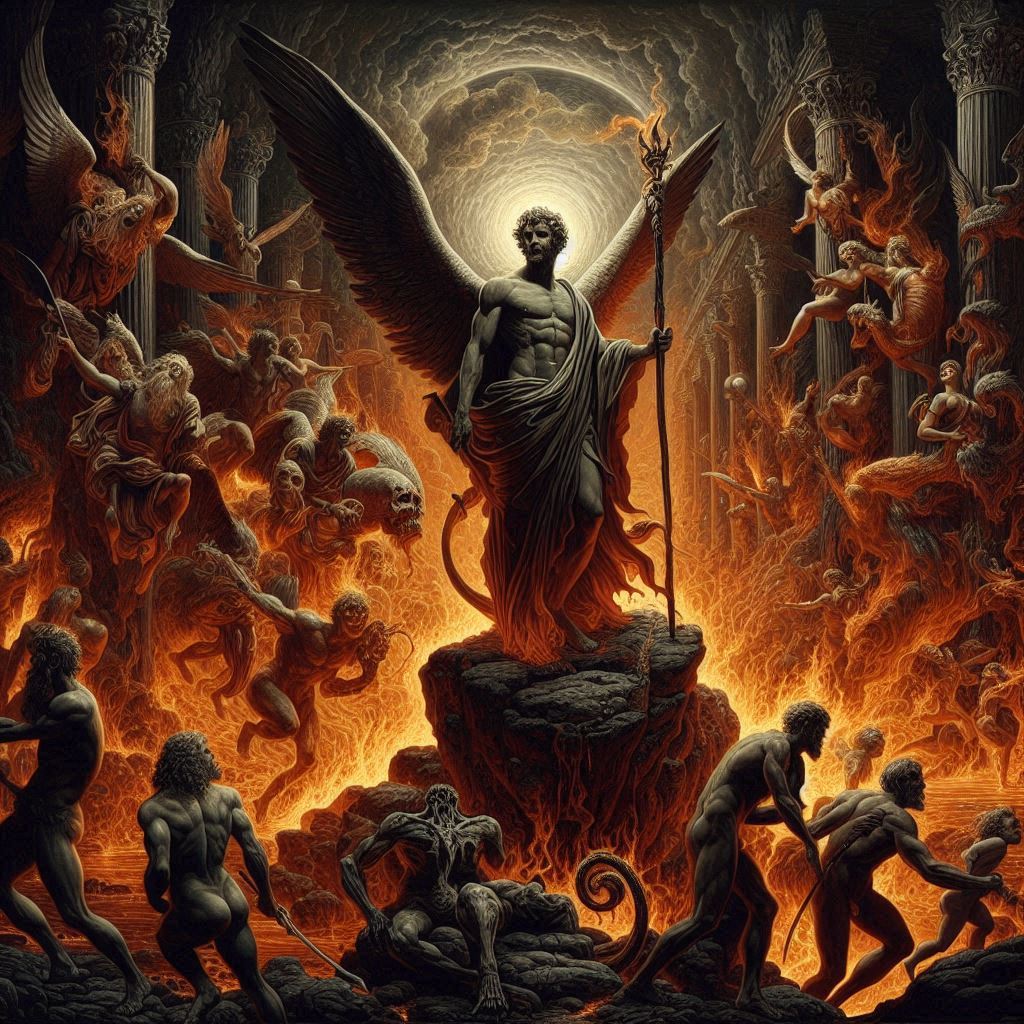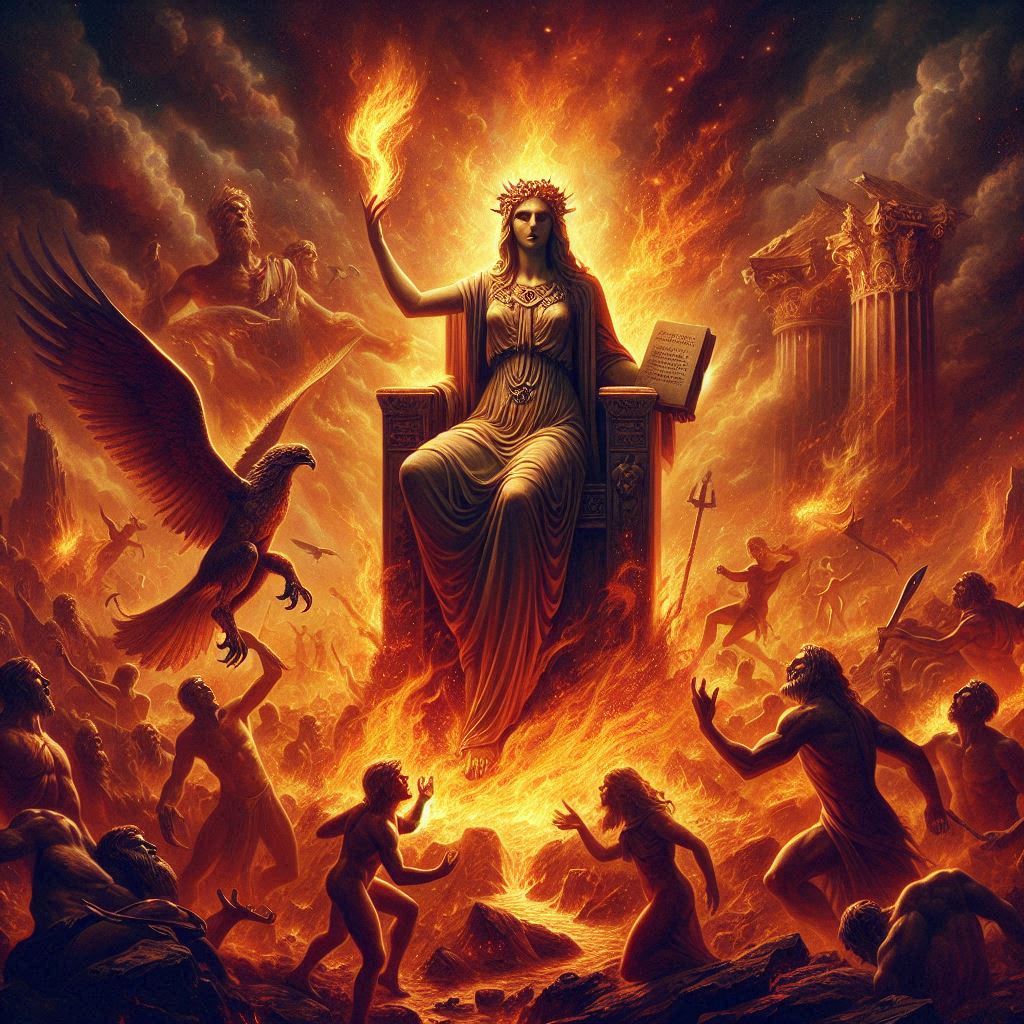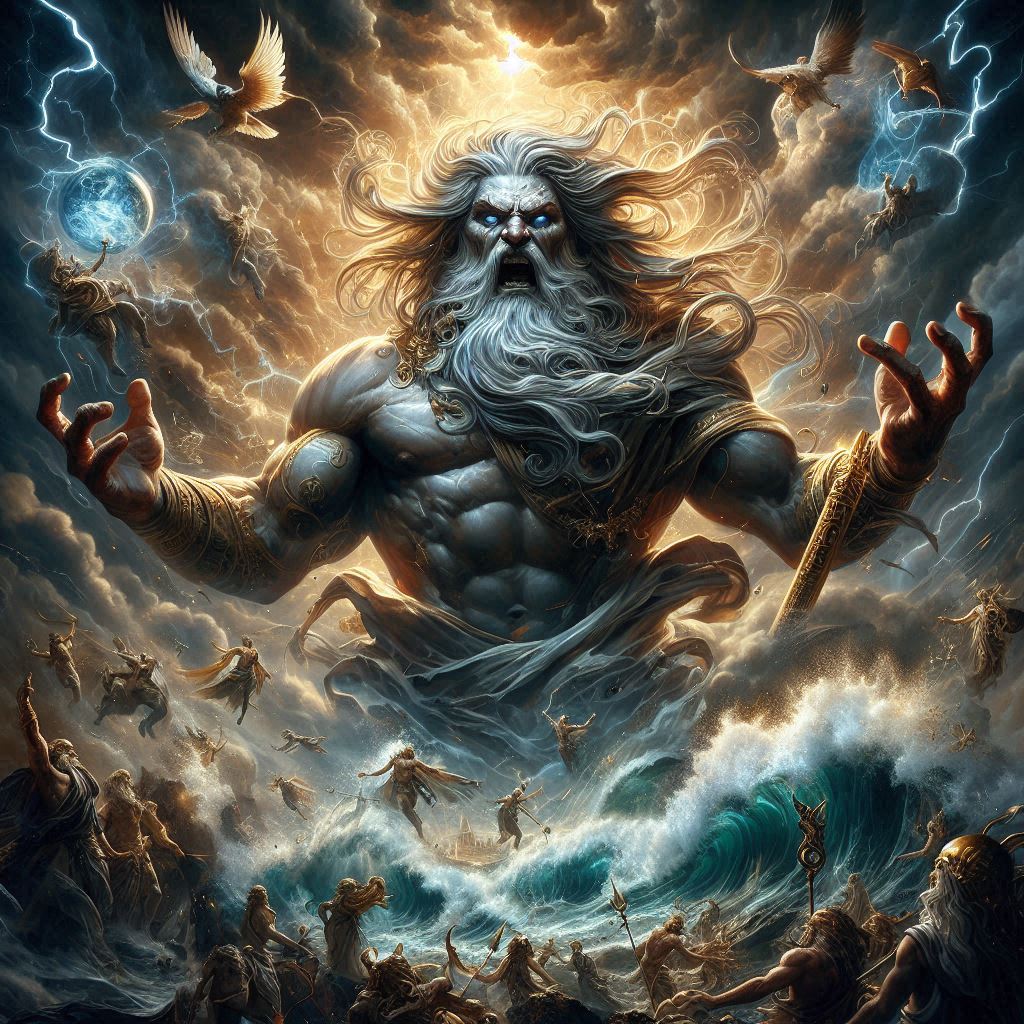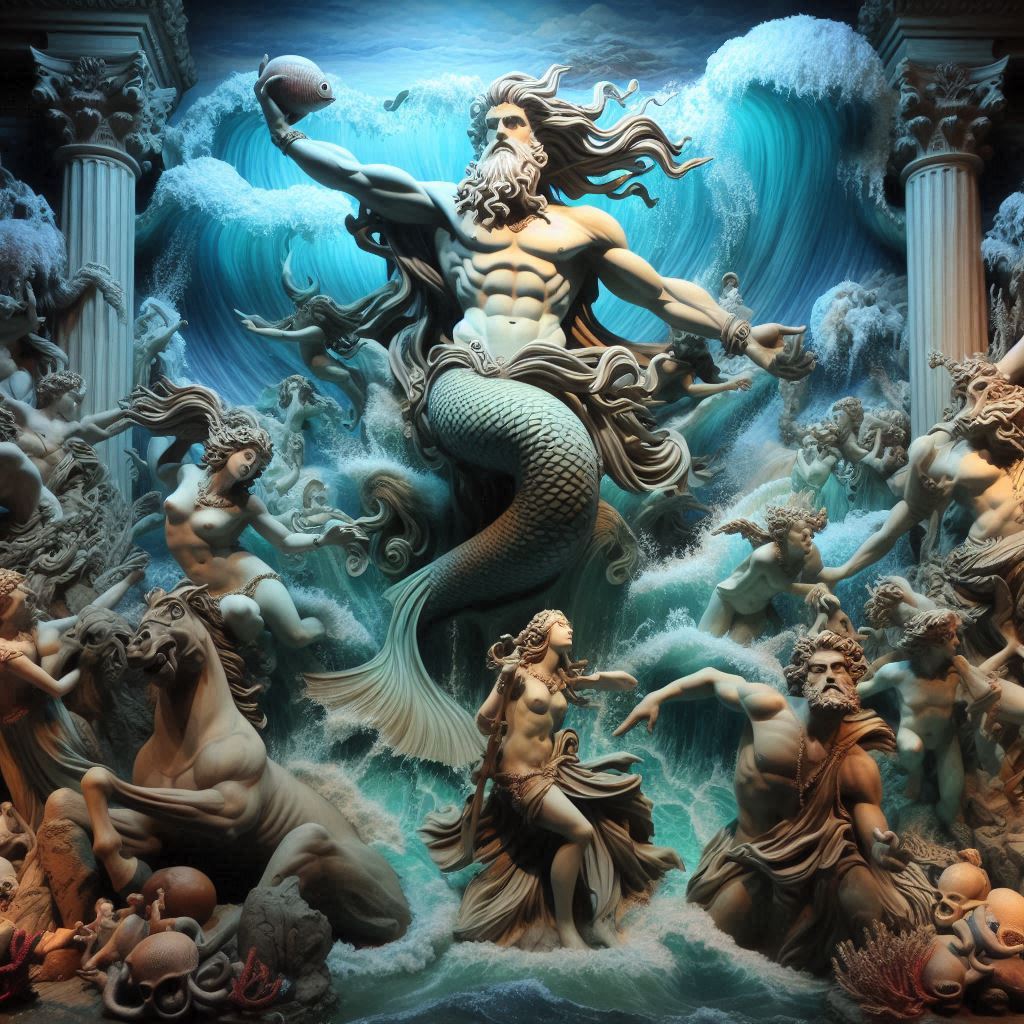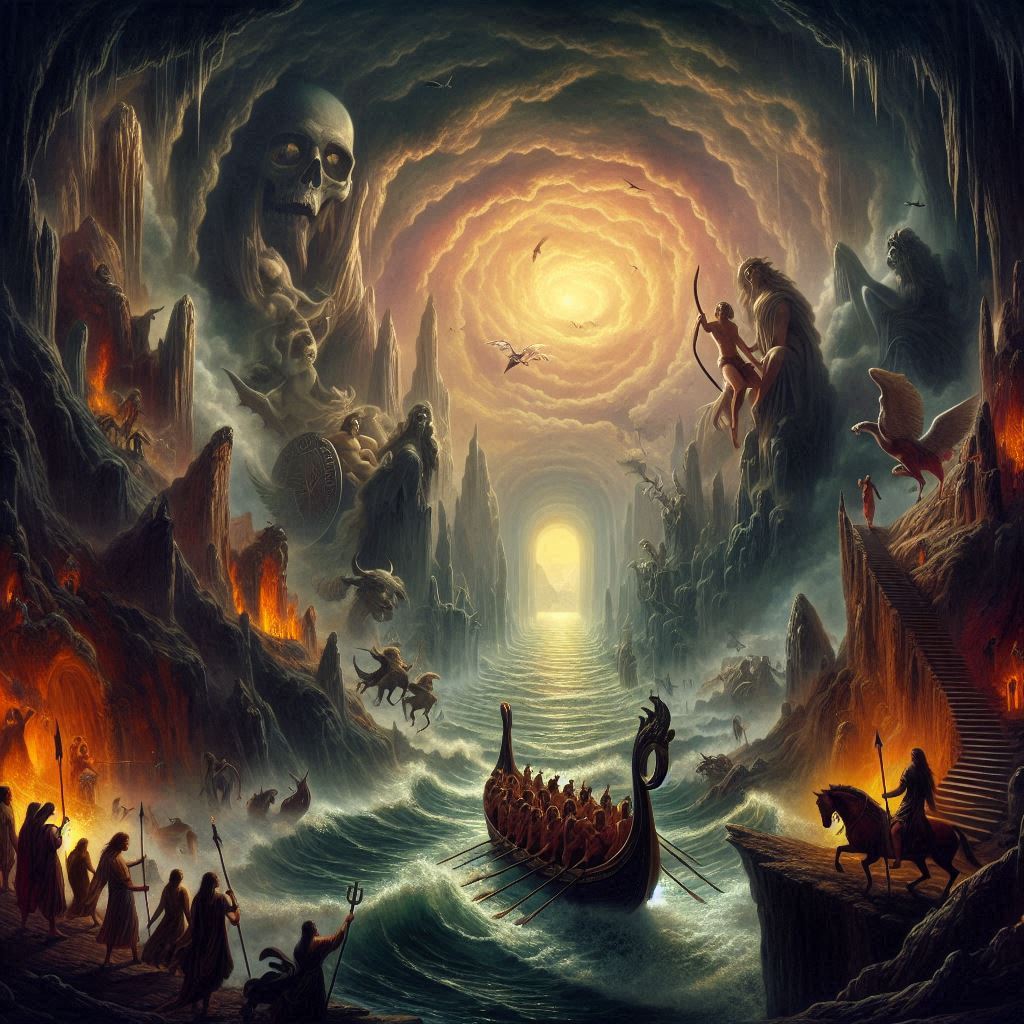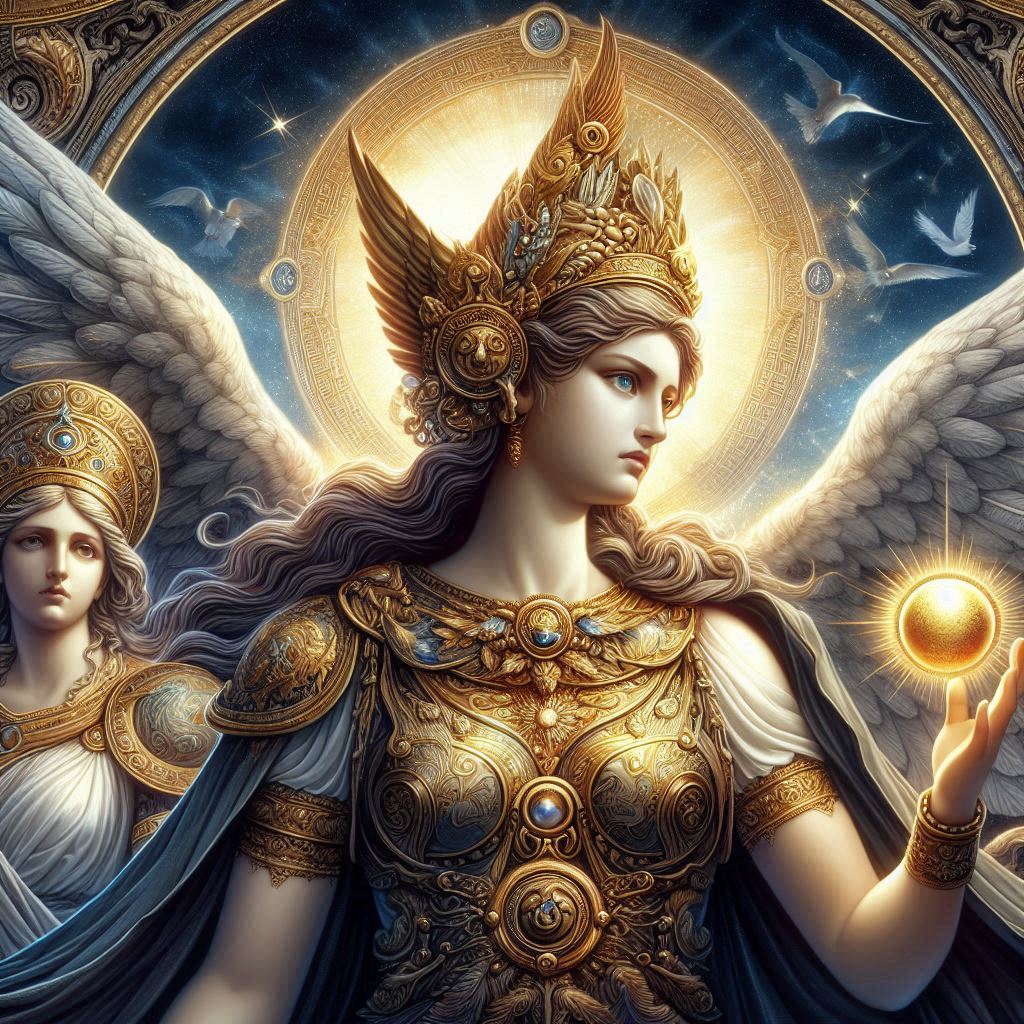Jawaharlal Nehru (1889-1964) was an Indian nationalist leader and statesman who played a central role in the struggle for India’s independence from British rule. He served as the first Prime Minister of independent India from 1947 until his death in 1964. Nehru was a key figure in shaping the nation’s political, economic, and social policies, advocating for a secular and socialist India. As a close associate of Mahatma Gandhi, he actively participated in the nonviolent civil disobedience movements. Nehru’s legacy includes his role in nation-building, efforts to modernize India, and his commitment to democratic principles.
Coming from a privileged background, Nehru was born into the influential Nehru-Gandhi family. His father, Motilal Nehru, was a prominent lawyer and a leader in the Indian National Congress (INC), the party that would later play a pivotal role in India’s independence movement. Growing up in an environment steeped in political discourse and nationalism, Nehru developed a keen awareness of the socio-political issues facing India.
Educated in England at Harrow and later at Cambridge University, Nehru’s exposure to Western political thought and ideas had a profound impact on his worldview. He imbibed the principles of democracy, socialism, and secularism, which would later shape the foundations of independent India. Nehru’s education abroad also exposed him to the nascent socialist movements in Europe, influencing his commitment to social justice and economic equality.
Nehru returned to India in 1912 and joined the legal profession, following in the footsteps of his father. However, his involvement in nationalist politics became increasingly pronounced. The Jallianwala Bagh massacre in 1919, where British troops opened fire on a peaceful gathering in Amritsar, deeply affected Nehru and intensified his resolve to work towards India’s freedom.
The 1920s saw Nehru’s active participation in the Indian independence movement. He aligned himself with Mahatma Gandhi, who had emerged as the leader of the nonviolent civil disobedience movement. Nehru’s commitment to the cause of Indian independence led to several spells of imprisonment during the civil disobedience campaigns.
Nehru’s stature within the Indian National Congress continued to grow. His advocacy for a socialist and secular India resonated with a wide cross-section of the population. He became the president of the INC in 1929 and played a crucial role in the Lahore Session of 1929, where the demand for complete independence, or “Purna Swaraj,” was officially adopted.
The 1930s witnessed Nehru’s close association with Gandhi in the Salt Satyagraha, a pivotal campaign against the salt tax imposed by the British. Nehru’s commitment to nonviolence and his ability to articulate the aspirations of the masses strengthened his position as one of the key leaders of the independence movement.
Nehru’s vision for an independent India was not merely focused on political freedom; he envisioned a society characterized by social and economic equality. This commitment to socialism was reflected in the economic policies he advocated for the nation. Nehru’s ideas on economic planning and industrialization were encapsulated in the famous “Nehruvian model,” emphasizing state-led development to uplift the impoverished masses.
World War II brought significant geopolitical changes that influenced India’s struggle for independence. Nehru’s negotiations with the British during the war aimed at securing India’s freedom, but the demand for a timeline for independence was not immediately met. The Quit India Movement of 1942, led by the INC under Gandhi’s guidance, marked a turning point in the struggle, signaling the intensification of efforts to end British colonial rule.
As World War II drew to a close, the Labour government in Britain, led by Clement Attlee, recognized the need for decolonization. The naval mutiny and the widespread sentiment for independence in India hastened the process. In 1947, the British Parliament passed the Indian Independence Act, leading to the partition of India and the creation of two independent nations, India and Pakistan.
Jawaharlal Nehru assumed office as the first Prime Minister of India on August 15, 1947, the day India gained independence. The challenges facing the new nation were immense, with the scars of partition, communal violence, and the need for nation-building at the forefront. Nehru’s leadership was crucial in guiding India through this critical phase.
One of Nehru’s early priorities was the formulation of a constitution for the newly independent India. He appointed a Constituent Assembly to draft the Constitution, which was adopted on January 26, 1950. The Constitution of India, with its emphasis on democracy, secularism, and fundamental rights, remains a cornerstone of the nation’s governance.
Nehru’s commitment to democratic principles was evident in his approach to governance. Despite the challenges of managing a diverse and complex nation, he ensured the establishment and sustenance of democratic institutions. India held its first general elections in 1952, and the Indian National Congress, under Nehru’s leadership, secured a resounding victory.
Nehru’s foreign policy sought to position India as a leader of the non-aligned movement during the Cold War. He aimed to maintain equidistance from both the United States and the Soviet Union, advocating for a policy of non-alignment and promoting cooperation among newly independent nations. The Bandung Conference in 1955, where Nehru played a key role, marked a significant moment in the emergence of the non-aligned movement.
The issue of Jammu and Kashmir emerged as a significant challenge during Nehru’s tenure. The region’s accession to India in 1947 led to conflict with Pakistan, resulting in several wars. The situation in Kashmir remains a complex and unresolved issue to this day.
Nehru’s economic policies aimed at building a self-reliant and industrialized India. The Five-Year Plans, inspired by socialist principles, focused on infrastructure development, industrialization, and poverty alleviation. However, the impact of these policies was mixed, with challenges such as slow industrial growth and economic disparities persisting.
Nehru’s leadership style, characterized by his charisma, intellectual prowess, and commitment to democratic ideals, earned him both admiration and criticism. His focus on centralized planning and state-led economic development faced challenges, and critiques emerged regarding the pace of economic progress and the effectiveness of social reforms.
The latter part of Nehru’s tenure saw increasing challenges, both domestically and internationally. The Sino-Indian War of 1962, a conflict with China over border disputes, ended in a defeat for India and marked a low point in Nehru’s political career. The economic challenges, coupled with health issues, contributed to a sense of disillusionment in the later years of his leadership.
Jawaharlal Nehru passed away on May 27, 1964, leaving behind a legacy that continues to shape India’s identity and trajectory. His daughter, Indira Gandhi, succeeded him as Prime Minister. Nehru’s contributions to the nation extend beyond his political role; he was a prolific writer, a scholar, and an advocate for education and scientific temper.
Nehru’s legacy is complex and subject to diverse interpretations. He is celebrated as the “Architect of Modern India” for his role in laying the foundations of a democratic and secular nation. His vision for a self-reliant, industrialized India had a lasting impact on the country’s economic policies. However, critiques of his leadership often focus on the challenges faced by the nation during his tenure, including economic disparities, regional conflicts, and the slow pace of development.
